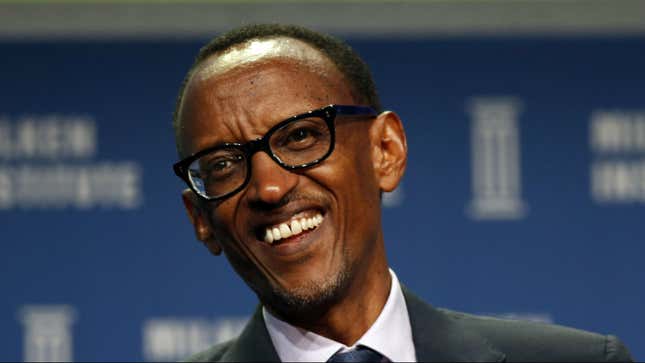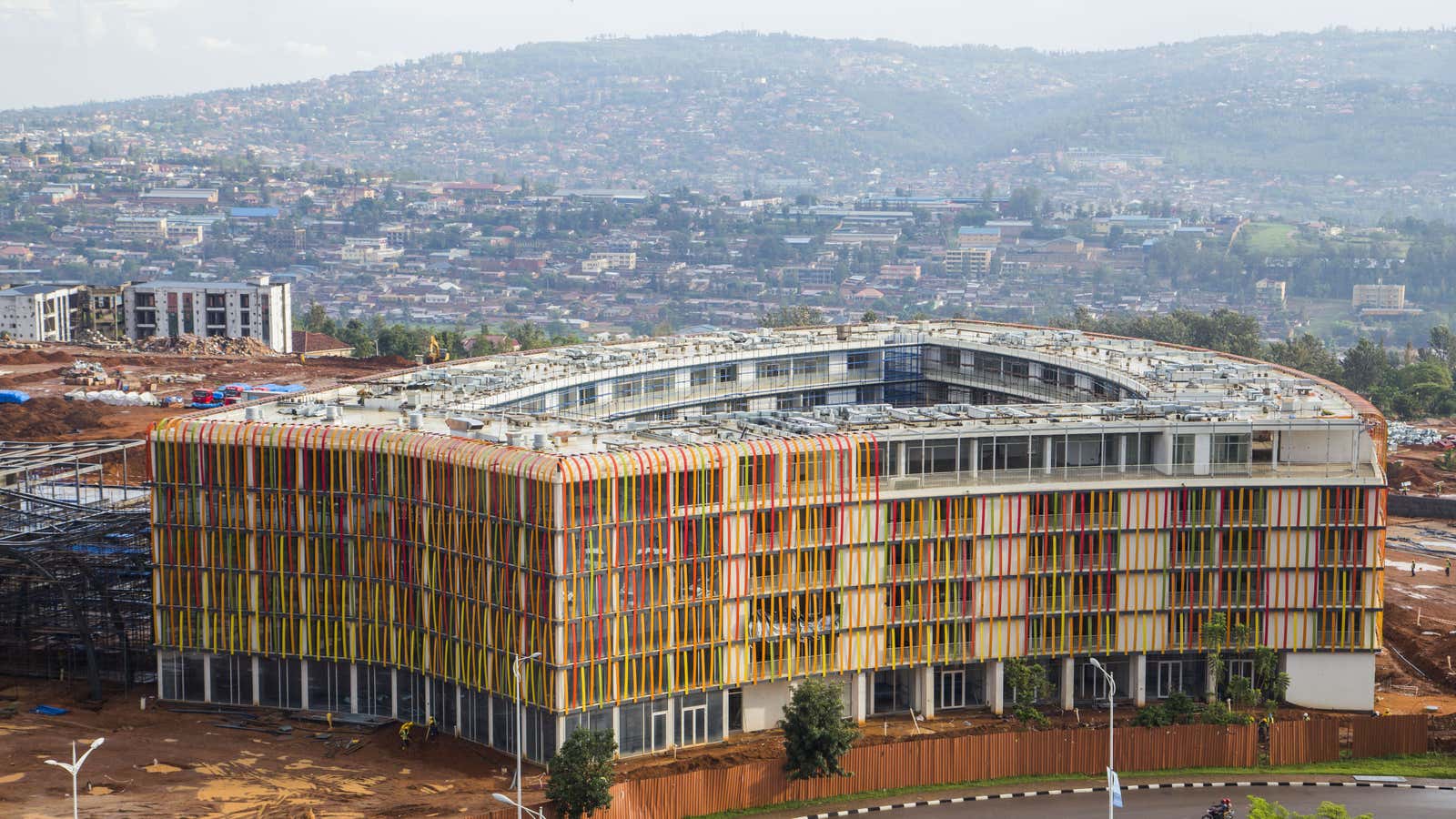Kigali, Rwanda
As you drive away from Kigali’s airport, there’s a big billboard over the four-lane highway that welcomes guests to this week’s World Economic Forum on Africa. You can feel the big-event euphoria enveloping Rwanda’s capital hours ahead of the kick-off.
The east African country isn’t completely new to welcoming major regional or global events. In recent years it’s hosted the African Development Bank meeting, the Interpol General Assembly, and Transform Africa, among other happenings. But the World Economic Forum on Africa seems to be a step up—and preparations for it have been stretching the small city’s limited resources.
Rwanda is meticulous in its preparations and has a penchant for leaving an impression on visitors. The capital has earned a reputation in recent years as one of the cleanest cities in Africa if not the world. So it’s trying to outdo itself to ensure guests have a memorable stay, while also making sure the economy retains as much money from the visitors as it can.
But sometimes, even in a well-run African country like Rwanda, the best-laid plans don’t always work out.
WEF Africa seemed to be an ideal event for showing off a brand-new, purpose-built Radisson Blu Hotel and Convention Center in the middle of the city. But despite a change of contractors and a revamp of its plans, the center just missed the crucial deadline.
The city’s infrastructure, including roads, has been improved. The airport has been upgraded, and security boosted. Amenities tied to the event, like hotel rooms and conference venues, have been given a face lift.
But the problem might be that there aren’t enough of those hotel rooms for an event like WEF, which can easily attract over 1,200 people. After a few hours in town, Quartz has already witnessed problems with hotels being overbooked. The 300-odd rooms of the Radisson Blu would have helped.
Rwanda has tried to capitalize on its tourism and hospitality industry by repackaging the country as an able business conference destination. The number of conference tourists has been growing over the past few years, benefiting the private sector, especially businesses tied to the tourism and hospitality ecosystem. In 2014 Rwanda hosted about 19,000 such visitors, up 24% from 2013.
“When big events like these happen, everyone gets paid. It’s an opportunity for businesses directly working with the tourism and hospitality sector, but [it] also has a multiplier effect to the entire market, because the organizers buy things from the market” said Makuza Celestin, the owner of Treasures Company Limited, an event organizer in Kigali.
Elephant in the room

It’s impossible to discuss Rwanda in any kind of global context without mentioning its president, Paul Kagame. Widely respected across the continent by many ordinary Africans for his vision and discipline in pursuing the rebirth of a country that had been devastated by the 1994 genocide, many wish they had leaders with similar principles. In fact, until very recently his image was very similar in the West and beyond.
But in the past year, as rumors turned to speculation and later to inevitability, it became clear that Kagame would stay on beyond a previously stated second mandate. In October, the Rwandan constitution was changed—with the mandate of the people, which meant he could very well stay in power till 2034 (if he were to win multiple elections). The West, led by the United States, has spoken out against the decision to run.
But it’s unlikely this will ever come up at an event like the World Economic Forum. Few African leaders can shine on stage as Kagame does. With his considered tone and carefully worded aphorisms about strong leadership and the need for vision on the continent, he usually has his fellow high-powered guests and the audience nodding along with his homespun common sense and clear passion for the continent.
This week expect to read plenty of positive talk about the digital transformation of Africa’s education, bringing more Africans online, supporting startups, and advanced agribusiness, among other important topics. Discussions about presidential term limits, however, may seem rude to the host.




